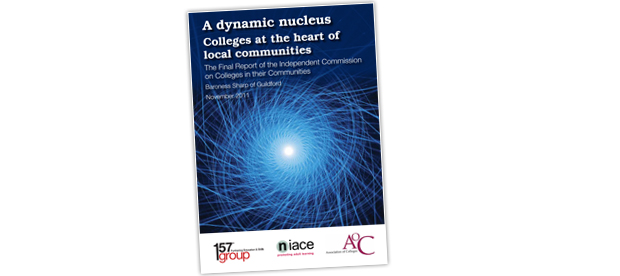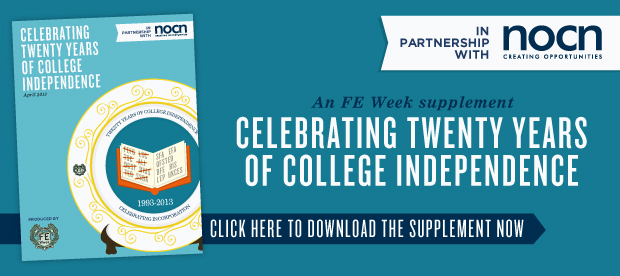It’s not just a lack of government cash that is bringing about a redefinition of the relationship between learner, state and employer
One thing’s for certain: there will be no money for immediate initiatives in FE for the next five years.
Colleges will have to find new roles to ensure they are a central part of the skills agenda.
There are stark differences between the Coalition and Labour over the future of FE, but on this point they agree. They also agree that the way forward can be found in the latest report from the Commission on Adult Vocational Teaching and Learning, chaired by Frank McLoughlin, principal of City & Islington College.
Gordon Marsden, Shadow Skills Minister, says the triple impact of austerity, technological change and the demand for new styles of learning and training for lifelong progression need urgent response.
“At the time of Incorporation 20 years ago the number of people working for themselves and in micro–businesses wanting training and skills for lifelong learning was pretty small,” he says.
“We are now dealing with a substantially different profile, so people want different learning structures with different needs.”
Marsden says within the next five years learners will demand a more fluid online system. Plus, he says, the 1993 “silos” between FE, higher education and online learning will fold into one another within the next 10 to 15 years.
“Mr McLoughlin is already laying the ground for some of these arguments — the two-way street between providers and employers, and the need for properly-taught dual professionals in colleges and work, etc.” says Marsden.
For him, the strength of colleges will be the progressive skills they offer, saying: “If the mantra under Blair was ‘education, education, education’ then under the next Labour government it will be ‘progression, progression, progression’.”
Colleges are, he says, at an “extraordinary cusp”, affected by economic change and the proposals in a range of reports on skills and apprenticeships — not least the Richard, Holt and Heseltine reviews. But there is “unfinished business” beyond skills, he says.
“If you look at all the issues that have come up in FE, it’s controversies between active and inactive benefits, Esol entitlements, fee loans post-24 . . . even the suggested loans 19-24,” explains Marsden.
“They all point to the same thing: the need to strike a balance between learner, state and employer. We tried to address this with individual learning accounts and The Learning Age. A decade on, that fundamental question still has to be addressed. We have not reached a settled conclusion on that.”
For David Hughes, chief executive of the National Institute of Adult Continuing Education (NIACE), this wider question is an issue that, however crucial, the skills debate must not bury. He refers to Baroness Sharp’s commission into the role of colleges in their communities, commissioned in 2010 by NIACE, the Association of Colleges and the 157 Group.
The report concluded top-down accountability, which was being stripped away by the Coalition government, meant colleges had to be more transparent about their use of increasingly scarce resources, in quality, in outcomes for learners, in curriculum design and so on.
“The elegance of this proposition was based on the evidence that NIACE never ceases to broadcast: that there are many people in a local economy who will not demand learning, who are not confident and empowered customers,” says Hughes.
“That is, in part, why they ‘need’ to get into learning. In a customer-driven system their needs are not catered for; in a system with outward accountability they should be listened out for.”
Since the Sharp report there have been “more freedoms and flexibilities” from government; the arrival of local enterprise partnerships and health and well-being boards, and employers being given more control through employer ownership pilots.
“All these reinforce the need and the benefits of a new accountability for colleges,” says Hughes.
“There may be many pitfalls ahead for colleges in these new arrangements, but colleges as civic leaders will be able to act as partners and balance the needs of employers, communities and learners.”



Your thoughts